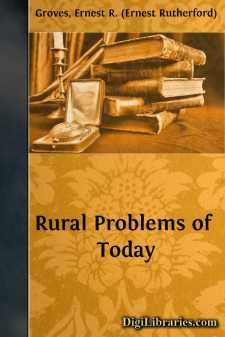Non-Classifiable
- Non-Classifiable 1768
Non-Classifiable Books
Sort by:
I. PHILIP'S PEOPLEA GRAND SACHEMPhilip, ruler of the Wampanoags, was the only Indian in our country to whom the English colonists gave the title of king. Why no other Indian ever received this title I cannot tell, neither is it known how it happened to be given to Philip. The Wampanoags were a tribe of Indians whose homes were in what is now southeastern Massachusetts and in Rhode Island east of...
more...
THE GOODWIN SANDS 'Would'st thou,' so the helmsman answered,'Learn the secrets of the sea?Only those who brave its dangersComprehend its mystery.' The Goodwin Sands are a great sandbank, eight miles long and about four miles wide, rising out of deep water four miles off Deal at their nearest point to the mainland. They run lengthwise from north to south, and their breadth is...
more...
There was deep insight in those old words. For man's natural thought of death is that of a dreary ending in decay and dissolution. And from his standpoint he is right: death as the punishment of sin is an ending. But far other is God's thought in the redemption of the world. He takes the very thing that came in with the curse, and makes it the path of glory. Death becomes a beginning instead...
more...
by:
Joseph Kennedy
RURAL LIFE It is only within the past decade that rural life and the rural school have been recognized as genuine problems for the consideration of the American people. Not many years ago, a president of the United States, acting upon his own initiative, appointed a Rural School Commission to investigate country life and to suggest a solution for some of its problems. That Commission itself and its...
more...
by:
Mme. Du Hausset
We were obliged by circumstances, at one time, to read all the published memoirs relative to the reign of Louis XV., and had the opportunity of reading many others which may not see the light for a long time yet to come, as their publication at present would materially militate against the interest of the descendants of the writers; and we have no hesitation in saying that the Memoirs of Madame du...
more...
THE RURAL WORKER AND THE COUNTRY HOME With reference to the care of children, faulty homes may be divided into two classes. There are homes that give the children too little care and there are homes that give them too much. The failure of the first type of home is obvious. Children need a great deal of wise, patient, and kindly care. Even the lower animals require, when domesticated, considerable care...
more...
INTRODUCTION. In the month of March of the year 1823, I was appointed by his Imperial Majesty Alexander the First, of glorious memory, to the command of a ship, at that time unfinished, but named the Predpriatie (the Enterprise). She had been at first destined for a voyage purely scientific, but circumstances having occurred which rendered it necessary to change the object of the expedition, I was...
more...
SECTION I TIMBER Characteristics and Properties Timber was probably one of the earliest, if not the earliest, of materials used by man for constructional purposes. With it he built for himself a shelter from the elements; it provided him with fuel and oft-times food, and the tree cut down and let across a stream formed the first bridge. From it, too, he made his "dug-out" to travel along and...
more...
by:
Grace Viall Gray
CHAPTER I GETTING READY TO CAN Before the World War, housewives had lost the good habit of canning, preserving and pickling. It was easier to buy California fruits by the case and canned vegetables by the dozen or half dozen cans, according to the size of the family. There is no doubt it was cheaper and decidedly easier to purchase canned fruits, vegetables, greens, soups and meats than to take time...
more...
NATURE OF FUNGI. The most casual observer of Nature recognizes in almost every instance that comes under his notice in every-day life, without the aid of logical definition, the broad distinctions between an animal, a plant, and a stone. To him, the old definition that an animal is possessed of life and locomotion, a plant of life without locomotion, and a mineral deficient in both, seems to be...
more...











